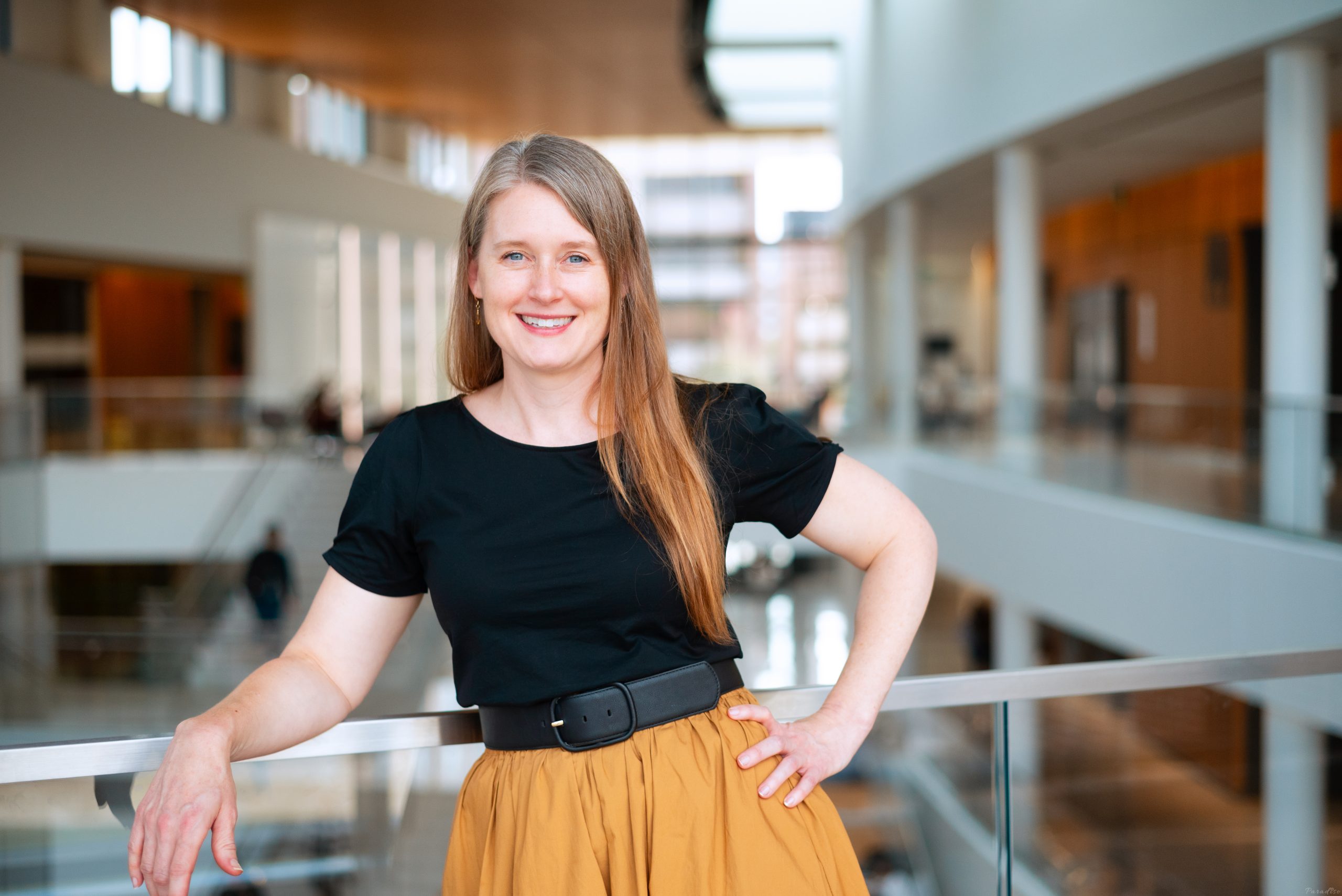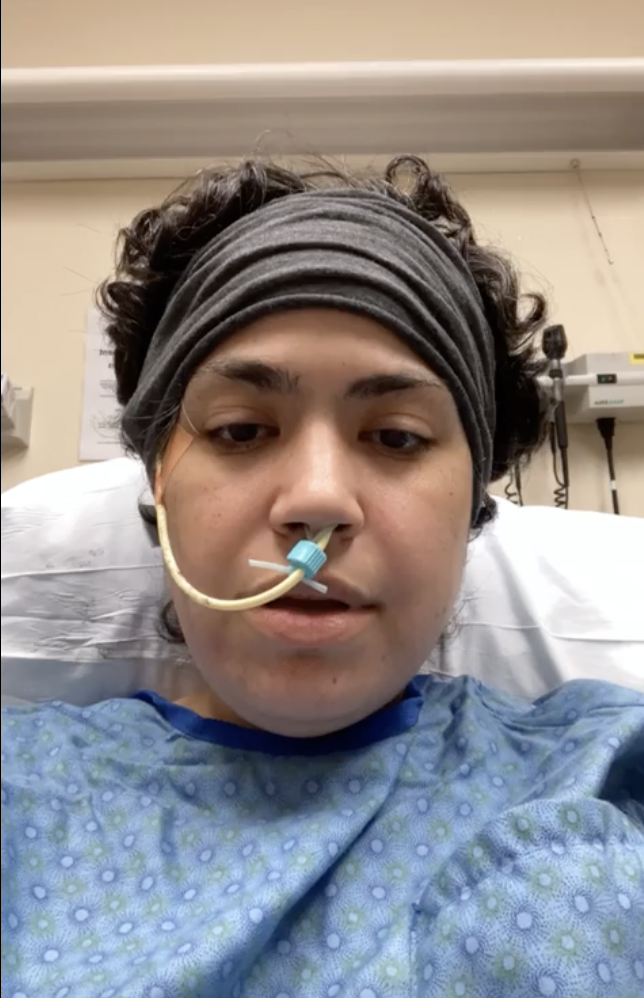By Dr. Javon Jackson
Rina Risper, the president and publisher of The New Citizens Press, and Roger Lane Glumm Productions did a magnificent job in sponsoring the first Annual Carrington & Stokes, Inc. Black History Month Program at the Kellogg Center on the Michigan State University campus.
The keynote speaker was Dr. Rick Kittles from Howard University, who is also the founder of the African Ancestry lineage DNA database.
Dr. Kittles’ topic was entitled, “A Bridge to the Past: Tracing Your Roots through DNA.”
Other performers were the “Nu” Poets: Mujahid, Omar Anderson, Chill, and Justice. The Sankofa Shule Dancers & Drummers also performed. Everyone did a wonderful job.
Since Alex Haley’s novel and television miniseries entitled, Roots, was televised, people, especially Black people, have had a resurgence in who they are and in the origin of their ancestors.
In a Web site survey, 80% of African-Americans wanted to know which part of Africa they came from since slavery destroyed that information by deracination.
This was done at the beginning of the 250 years of slavery because in some regions slaves outnumbered whites.
Whites feared slave rebellion so much that they prohibited slaves from communicating and organizing.
Whites committed cultural genocide by not allowing slaves to use their names, speak their languages, practice their faiths, interact with their tribes or members of their same marking of scarification, and pass their oral family history onto their progeny.
They were not even allowed to play drums because slave masters thought that drumming was also another form of language.
“America has been fascinated with genealogy, which is the study of determining one’s family history,” according to Dr. Kittles.
He is also the co-director of Molecular Genetics at the National Human Genome Center also housed on the Howard University campus and he is also in charge of large-scale high throughput genotyping and DNA sequencing.
His research exploits gene genealogy in studies of population history and disease association. He has published his research on prostate cancer genetics of African-Americans and on genetic variation in the African Diaspora.
From the international Human Genome Project, scientists can trace one’s family roots through DNA to one’s original African country and African ethnic group.
There are thousands of ethnicities and four major language groups, which includes over 2,000 languages and even more thousands of dialects spoken on the African Continent.
The four languages are Niger-Kordofanian:Niger-Congo, Afro-Asiatic, Khoisan, and Nilo-Saharan.
“Since scientists discovered Mitochondrial Eva in Africa, the first human on the planet, Africans have the most diverse ancestry since they were on the planet the longest,” he denoted.
Most slaves came from West, Central, and East Africa because slave traders had easy access to them in those locations.
These locations are now known as the Gold Coast, Nigeria, Ghana, Sierra Leone, Angola, Mali, Niger, and Guinea.
During the middle passage, 30% of the slaves died and many women were raped by slave traders and later by slave owners and bore mulatto (admixture) children.
“For example, 80% of Jamaicans are of German descent including me,” reported Dr. Kittles.
The English, French, Dutch, and Portuguese controlled the slave trade. The Portuguese still control Central Africa.
The slave ships docked at ports in the Caribbean; Brazil; Charleston, South Carolina; Richmond Virginia; New Orleans, Louisiana, and even New York City.
Dr. Kittles received his Ph.D. in Biological Sciences from George Washington University.
He worked on the interdisciplinary African Burial Ground Project in lower Manhattan from 1997 to 1999.
For years Howard University has used genetic data to study diseases that afflict African-Americans such as high blood pressure, diabetes, and sickle cell anemia.
Dr. Kittles became the Project Director of the African-American Hereditary Prostate Cancer Study Network (AAHPC) at the Howard University Hospital’s Cancer Center in 1998.
He helped establish a national cooperative network of AAHPC Collaborative Recruitment Centers.
The AAHPC study is a genetic study of hereditary prostate cancer and type II diabetes in African-Americans.
The mission of the National Human Genome Center is to explore the science of and to teach the knowledge about DNA sequence variation and its interaction with the environment in the causality, prevention, and treatment of diseases common in African-American and other African Diaspora populations.
DNA, or deoxyribonucleic acid is the basis of hereditary molecules. It determines traits that pass from one generation to the next.
The “Y” chromosome, which determines whether a child will be born male, is passed directly from fathers to sons.
Mitochondrial DNA (mtDNA), which comes from a segment of the human cell that generates energy, is passed unchanged from mothers to both male and female children.
He expounded, “There were 14 generations since slavery or 2 to the 14th exponential power which equals 16,384 immediate ancestors for a person living in today’s world which can be traced to three haplotypes–which are the ethnicity specific mitochondrial DNA which never changed–L1. (about 120,000 years old), L2. (about 65,000 years old), and L3. (about 90,000 years old), which are lineages located in mostly three distinct geographical parts of Africa.”
All other chromosomes in a cell undergo a sort of genetic reshuffling when sperm and egg unite at conception, which makes it difficult to use them to trace ancestry.
Male subjects use the PatriClan and female subjects use the MatriClan test kits, which consist of two cotton swabs in plastic packaging, instructions, information form, and return envelope. The cost is $349.00 for one kit. The discount price for two kits is $658.00.
The test subject simply takes an inner-cheek epithelial (buccal) sample from one’s mouth.
African Ancestry takes the test subject’s sample and tries to match it in its database with the African samples.
The growing database includes DNA samples from over 10,000 Africans from over 60 indigenous populations derived mostly from Western Africa.
About 30% of the Black males tested were directly descended from Europeans on their fathers’ side.
And, about 5% of the Black females tested were directly descended from Europeans on their mothers’ side.
Although these Black males and females have white DNA, this does not mean that they cannot have a Black identity because race is defined in a social context not in a biological context.
Dr. Kittles declared, “We are expanding our database and are identifying more African populations as well as developing separate databases with Native American, Asian, and European DNA in order to cross-reference genes that cannot be traced back to Africa.
“This test gives the 35 million African-Americans an opportunity to reclaim a stolen legacy, to strengthen a sense of identity and relationship with Africa, and to learn from which region of Africa their ancestors originated.”
For more information, one may contact Dr. Kittles or Gina Paige at the following addresses:
African Ancestry
5505 Connecticut Avenue, N.W., Suite 297
Washington, DC 20015
Telephone: 202.439.0641
Fax: 202.318.3088
www.africanancestry.com
rkittles@africanancestry.com
and apaige@africanancestry.com or for other genealogy Web sites use the following:
rkittles@africanancestry.com
and apaige@africanancestry.com or for other genealogy Web sites use the following:
www.familytreedna.com
www.genetree.com
www.longevitylabs.com
www.genetree.com
www.longevitylabs.com
and www.oxfordancestors.com
or Javon Jackson at hel940@yahoo.com
or Javon Jackson at hel940@yahoo.com
March 23, 2003 – April 5, 2003 Edition



